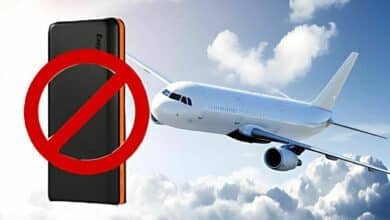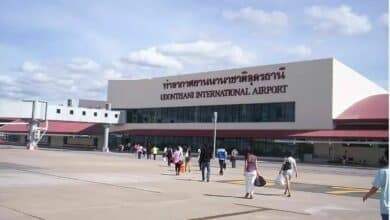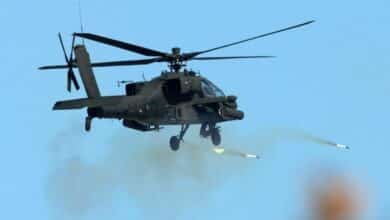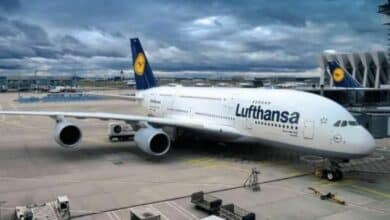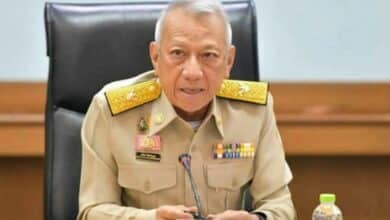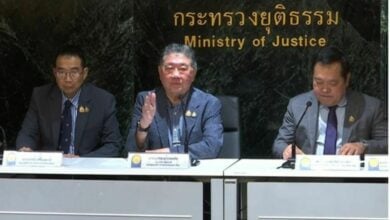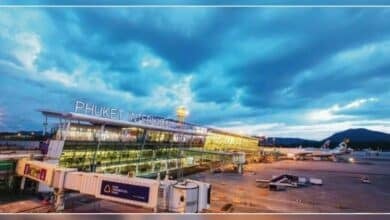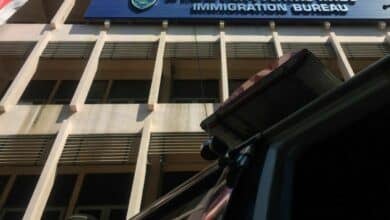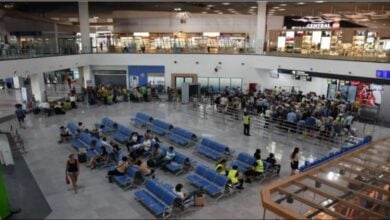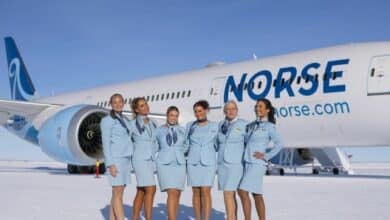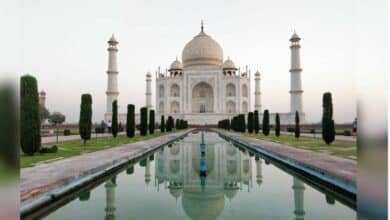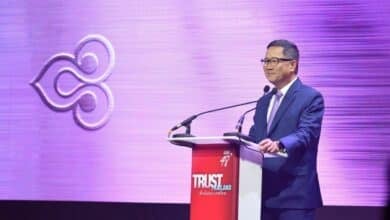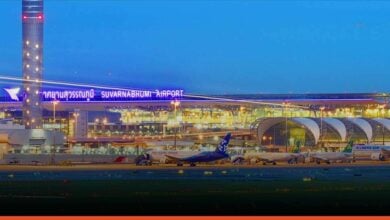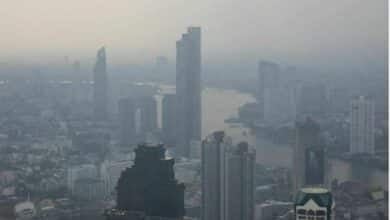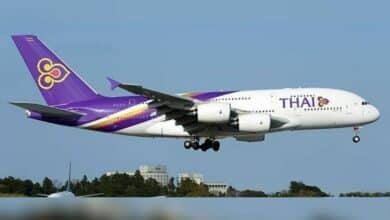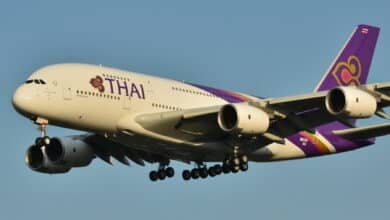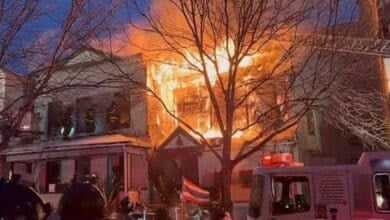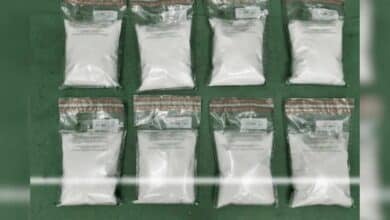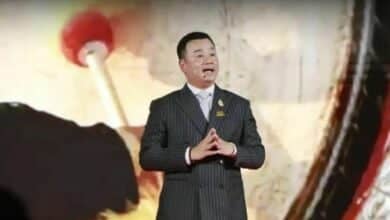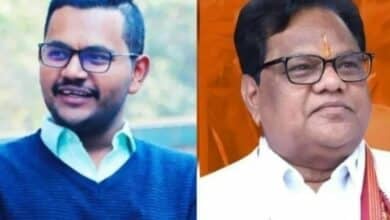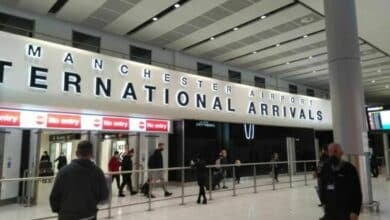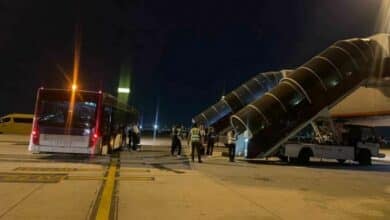World News
World news, global politics, business, technology, and culture—stay updated with breaking stories, international trends, and major events. Get the latest from The Thaiger, your trusted source for global news.
-
 Sponsored
Sponsored 10 biggest challenges retirees face in Thailand (and how to overcome them)
Retiring in Thailand comes with many benefits, like warm weather, affordable living, and a rich culture. However, it also brings challenges. Retirees must deal with visa rules, healthcare costs, language barriers, and cultural differences. Rising medical expenses, required insurance, and...
-

Thai Airways bans power banks on flights after explosive fire risk
Airlines worldwide, including Thai Airways, are banning the use and charging of power banks on flights from March 1, following a shocking fire incident aboard a Korean Air Busan flight. The explosion, caused by a faulty power bank, raised serious safety concerns, leading South Korean airlines and other inter6national carriers to tighten regulations to prevent similar disasters. The ban applies…
-

Thailand halts airport transfer plan due to financial concerns
Thailand’s Transport Ministry has abruptly scrapped plans to transfer Krabi, Udon Thani, and Buriram airports to Airports of Thailand Plc (AOT), citing financial and operational concerns. Instead, officials are shifting focus towards developing state-run airports to generate more income and reduce reliance on government funding. Deputy Transport Minister Manaporn Charoensri announced yesterday, March 6, that the transfer, initially approved by…
-

Military drill blunder leaves 4 Thais injured in South Korea
Two fighter planes mistakenly dropped eight bombs in a residential area in South Korea during a military drill between the country and the United States, resulting in 15 injuries. Four of the injured victims are Thai nationals. The spokesperson for the Ministry of Foreign Affairs of Thailand, Nikorndate Palangkul, reported that the ministry received notification of the bombing in Pocheon,…
-

Lufthansa sets sights on Thailand as expansion takes off
The Lufthansa Group is focusing on expanding its operations in Asia and Thailand, while also diversifying into non-airline businesses. Carsten Spohr, chief executive of the group, highlighted that Thailand is not just a tourism hub but also a lucrative business destination. The demand for cargo from Thailand is rising, and the Asia-Pacific region is the fastest-growing market for maintenance, repair,…
-

Bangkok Airways suspends northern flights due to smog
Bangkok Airways announced the temporary suspension of all flights between Suvarnabhumi International Airport and the northern destinations of Lampang and Mae Hong Son, as thick smog and hazardous air pollution continue to engulf the region. The airline confirmed that services would be grounded from March 15 to April 20 due to dangerously low visibility caused by persistent haze, which has…
-

Thailand allegedly snubbed US, Canada, Oz, Uyghur asylum offers
Thailand snubbed asylum offers, from the US, Canada, and Australia, and deported 48 ethnic Uyghurs to China, according to Reuters. The move comes despite a decade-long detention limbo and impassioned calls from UN human rights experts for the Uyghurs’ safety. The Government of Thailand staunchly defended the deportation, asserting it was carried out in line with their legal and human…
-

Thai plane shame: Pakistanis stranded in Bangkok bust-up (video)
Chaos erupted for Pakistani travellers after they found themselves marooned in Bangkok for two long days after technical issue with a Thai Airways flight. In a maddening turn of events, passengers were left in suspense for six gruelling hours at Suvarnabhumi International Airport in Bangkok, clinging to the hope of an alternative flight. Those hopes were dashed, however, when Thai…
-

Labour Ministry backs export of Muay Thai coaches to Hong Kong
The Labour Ministry has committed to fully supporting the export of Muay Thai boxing coaches to Hong Kong, where there is a significant demand for their expertise. This commitment was highlighted during Labour Minister Phiphat Ratchakitprakarn’s recent visit to the territory. During his visit, Phiphat, accompanied by senior ministry officials, toured a fitness centre on Fa Yuen Street in Mong…
-

Thailand deports 40 Uyghurs to China despite UNHCR warnings
Thailand has deported 40 Uyghurs to China after holding them for over a decade, drawing condemnation from the United Nations High Commissioner for Refugees (UNHCR). The agency expressed its deepest condolences and labelled the deportation a violation of international law. UNHCR reported that it repeatedly requested access to the detained Uyghurs, who feared persecution if returned to China. Thai officials…
-

Phuket Airport to boost flight capacity to 35 per hour
The Thai Ministry of Transport has instructed the Aeronautical Radio of Thailand Company Limited (AEROTHAI) to enhance Phuket Airport’s flight handling capacity. By 2025, the aim is to increase from 25 to 35 flights per hour. Deputy Minister of Transport Monaporn Charernsri announced yesterday, February 27 that AEROTHAI is examining methods to boost Phuket Airport’s efficiency, one of Thailand’s busiest…
-

Thailand deports 40 Uyghurs to China amid global outrage
Thailand has secretly deported 40 Uyghur detainees to China after nearly 11 years in detention, sparking international outrage and accusations of human rights violations. The deportation was confirmed by Defence Minister Phumtham Wechayachai, who stated that the transfer was conducted under international standards and after receiving assurances from China regarding the detainees’ welfare. The operation began in the early hours…
-

U-Tapao Airport expansion cut as high-speed rail delays continue
The ambitious U-Tapao Airport expansion is being drastically scaled back as the Bangkok-Rayong high-speed rail project faces ongoing delays and uncertainty. The airport, a key component of the Eastern Economic Corridor (EEC) development, was initially designed to handle 12 million passengers annually. However, with the high-speed rail link stalled for nearly five years, those plans are being significantly downsized. U-Tapao…
-

Nok Air shifts focus from China to India, Japan, Taiwan, Singapore
Nok Air intends to reduce its flights to mainland China this year due to slow market growth and will instead focus on expanding its services to India, Japan, Taiwan, and Singapore. The airline’s Chief Executive, Wutthiphum Jurangkool, highlighted the shift in Chinese tourists’ preferences towards Japan over Thailand and noted the Chinese government’s lack of support for outbound travel. Safety…
-

New horizons: Norse Atlantic soars with Gatwick to Bangkok route
Norse Atlantic Airways announced the launch of a new direct route from London Gatwick to Bangkok, promising passengers an enticing journey without breaking the bank. Set to take off on Sunday, October 26 this year, the new service will operate up to four times a week, with return fares starting from just £295 (12,500 baht) taxes included. The announcement comes…
-

India offers free 30-day visa for Thai tourists until end of the year
To boost Thai tourist arrivals and balance the growing number of Indian tourists visiting Thailand, India is offering Thai travellers a 30-day visa-free entry until the end of 2025. The Indian government announced that Thai visitors could now apply for an e-tourist visa online without paying any entry fee, encouraging more Thais to explore India. The Indian embassy in Thailand…
-

Thai Airways aims for top 10 global rank by this year
Chansin Treenuchagron, a key figure in Thai Airways, emphasised the airline’s crucial role in national development while aiming to rank among the top 10 airlines globally. The discussion took place yesterday, February 19 at the Matichon Leadership Forum 2025, held at the Queen Sirikit National Convention Centre in Bangkok. Chansin, a board member and executive planner of Thai Airways International…
-

Thailand launches new luxury bus service to Pattaya and Hua Hin
Thailand is about to rescue those arriving in the Land of Smiles lost in a sea of taxis with a new first-class bus service that’s set to redefine airport transfers from Bangkok, to Pattaya and Hua Hin. Thailand’s state-run Transport Co., is ready to roll out a swanky first-class bus service starting on March 8, promising to make the dreary…
-

Bangkok to adopt Beijing’s air pollution solutions in landmark deal
Bangkok is set to benefit from Beijing’s expertise in tackling air pollution, as the two capitals signed a groundbreaking Memorandum of Understanding (MOU) on Air Quality Monitoring and Management Cooperation. The agreement, signed via video between the Beijing Municipal Ecology and Environment Bureau and the Bangkok Metropolitan Administration’s Environment Department, marks a major step in the fight against toxic smog.…
-

THAI flight makes emergency landing as passenger stops breathing
Thai Airways (THAI) flight TG408, en route from Singapore to Suvarnabhumi Airport, issued an emergency signal while flying over the Gulf of Thailand yesterday, February 18. The aircraft landed safely at Suvarnabhumi Airport after the emergency alert was triggered due to a medical situation on board. Reports revealed that the emergency, named TG408/18FEB 77B/TKR SINBKK Declare Medical Emergency Landing, was…
-

Sex sales: China’s sex doll revolution with an AI-morous embrace
In a bold leap forward, China’s WMDoll is shaking up the sex toys industry with its cutting-edge, AI-enhanced creations, promising heightened interactivity and a surge in sex doll sales. With state-of-the-art technology behind the scenes, these sophisticated companions are transforming the market. It’s no secret that life’s little pleasures often come with a twist, and China’s WMDoll is adding quite…
-

Pane and gain: Thai Airways lands safely amid cracked cockpit drama
In a high-flying drama with a smooth landing, Thai Airways ensured passenger safety remained sky-high after a Bangkok to Singapore flight returned due to a cracked cockpit window, forcing a swift aircraft swap and ensuring passengers reached their destination safe and sound. In an unexpected twist, travellers aboard Thai Airways’ flight TG401 experienced an unscheduled return to Bangkok after a…
-

Tragic temple fire in New York kills Buddhist monk
A devastating fire tore through a Buddhist temple in The Bronx, New York City, early Wednesday morning, February 12, leaving two people dead, including a Buddhist monk. The blaze, which erupted around 6am, quickly engulfed the small temple and a neighbouring residence for monks, causing irreversible damage. FDNY Chief of Department John Esposito confirmed the tragedy. “We had fire throughout…
-

AirAsia soars to new heights with record passenger growth in 2024
AirAsia is flying high after recording a surge in passenger numbers throughout 2024, as the budget airline group expanded its fleet to meet booming travel demand. The carrier welcomed over 63 million passengers last year, an 11% increase from 2023, while its load factor climbed to 89%. The final quarter of 2024 was particularly strong, with 16.2 million passengers flying…
-

Bangkok passenger caught smuggling ‘space oil’ at HK airport
A brazen drug smuggler’s trip from Bangkok to Hong Kong ended in disaster when customs officers uncovered a shocking stash of illicit “space oil” hidden in fruit-flavoured drink powder. The 22 year old suspect was stopped at Hong Kong International Airport yesterday, February 13, where officials discovered approximately 8 kilogrammes of the substance, containing the controlled drug etomidate, inside his…
-

Sky-high thieves on the rise: Minister demands tighter flight security
A wave of in-flight thefts targeting unsuspecting passengers sparked urgent action from Thai police after reports revealed that criminals stole valuables worth 19 million baht on flights to Hong Kong last year. Tourism and Sports Minister Sorawong Thienthong has now called on airlines to step up cabin inspections and warn passengers to safeguard their belongings. Several airlines have already tightened…
-

Ex-minister’s son pulled off Bangkok flight over ‘kidnapping’ alert
A chartered flight carrying India’s former Maharashtra minister Tanaji Sawant’s son, Rishiraj Sawant, and two friends was recalled to Pune under extraordinary circumstances. Police ordered the abrupt diversion after an anonymous tip-off claimed Rishiraj had been kidnapped, triggering an urgent police response. The private jet, which took off for Bangkok on Monday, February 10, was redirected after aviation officials verified…
-

Brit arrested at Manchester Airport for drug offences after Thai trip
A 21 year old British man’s holiday ended in handcuffs after he was arrested at Manchester Airport upon returning home from Thailand. Matthew Crehan, of Dentons Green Lane, St Helens, was taken into custody on Saturday, February 8, before being charged with multiple drug supply offences. Merseyside Police confirmed that Crehan faces charges related to the supply of class A,…
-

Vietjet’s Valentine’s surprise: Fly with fares from just 690 baht
Vietjet Thailand is celebrating the season of love with an irresistible Valentine’s – Fly for Love promotion, offering special fares starting at just 690 baht for domestic routes and 1,690 baht for international flights. Lovebirds and travel enthusiasts can book their dream getaway between February 10 to 14, with travel available from March 16 to October 25 (excluding public holidays, terms apply).…
-

Aeroflot flight makes emergency landing at Suvarnabhumi Airport
A Moscow-bound Aeroflot flight turned into a mid-air ordeal after a landing gear malfunction forced the aircraft to circle over the Andaman Sea for hours before making an emergency landing at Bangkok’s Suvarnabhumi International Airport. Aeroflot Flight SU277, a Boeing 777-300ER carrying 346 people, took off from Phuket Airport at 3.20pm yesterday, February 10. Shortly after departure, the nose gear…
Broke? Find employment in Southeast Asia with JobCute Thailand and SmartJob Indonesia. Rich? Invest in real estate across Asia with FazWaz Property Group or get out on a yacht anywhere with Boatcrowd. Even book medical procedures worldwide with MyMediTravel, all powered by DB Ventures.

